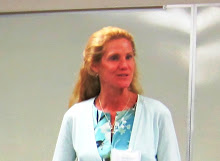Contact: Kathleen Conley Norbut, M.Ed., LMHC
United to Stop Slots in Massachusetts, President
USS Mass
PO Box 376
Palmer, MA 01069
ussmass@gmail.com
Pro-predatory Gambling Legislators Conduct Business Behind Closed Doors
(Boston) – United to Stop Slots in Massachusetts (USS Mass) a non-partisan statewide coalition criticizes pro-predatory gambling legislators as they conduct business behind closed doors with a recent forum on slots/casinos at the statehouse. “The work of “the people” seems to exclude “the people” of the Commonwealth when it comes to slots/casinos as evidenced when pro-predatory gambling legislators met on Monday in a closed forum on Beacon Hill,” stated Kathleen Conley Norbut, President of USS Mass. Organizers defended their actions to hide public officials from the public so they would, “feel comfortable to ask any questions without having any type of criticism.” Legislators give speeches about transparency yet they have crafted a double standard for their conveniences and are not bound by the same rules as local officials by Open Meeting Laws.
Elected officials should not be shielded from taxpayer’s questions and criticisms when it comes to discussing legalizing gambling activities that derive the vast majority of revenue from addicted individuals; are historically wrought with graft, political corruption and criminal activities. As offensive as these actions are to the citizens of the Commonwealth, closed door discussions and one-sided presentations have been common practice in the debate about legalizing expanded predatory gambling. Opponents of predatory gambling and local officials concerned about negative impacts to their communities were not included in the senate informational hearing in June. Concerned citizens were ignored by Administration officials two years ago when requests were made to meet to discuss the flawed legislation submitted by the Governor. The July 4th middle of the night legalization of predatory gambling by politicians in Pennsylvania was not a beacon of democracy.
Lobbyists are on-track to spend over $1 million dollars this year to influence the legislature to expand predatory gambling with slots/casinos in the Commonwealth. Meanwhile the Mass. Council on Compulsive Gambling budget was recently slashed, drastically reducing the safety net needed to treat the human tragedies created by compulsive gambling. The Beacon Hill formula has not changed; quick fixes, closed doors meetings, lobbyists fronting for deep-pocketed out-of-state and foreign investors, misinformation about revenues and job creation.
The only thing clear about what is happening on Beacon Hill is that nothing is transparent
Labor unions have threatened to withhold support to long-time Democratic legislators and traditional allies to pressure them to support their short-term interests for construction jobs. A handful of legislators have pressured labor unions to support their minute special interest group, track owners. These antics occur despite the reality that there is no upside for substantive construction jobs and many of the track jobs are not unionized. Legislative leadership has expanded their thinking to support expanding predatory gambling stating that jobs are needed, but they willfully ignore the long-term economic drain of slots/casinos including the documented subsidies by taxpayers in states with legalized slots/casinos for social, public safety and infrastructure costs created by the industry. Pro-predatory gambling legislators serve on Advisory Committees to UMass public policy centers while also setting the budgets for these facilities and the people who perform the limited research on slots/casinos.
Governor Patrick initiated the race to the bottom with his declaration of support for casinos. United to Stop Slots in Massachusetts therefore calls upon the Governor and the Legislature to perform independent cost-benefit analysis before any steps are taken to legalize an industry that creates greater long-term negative fiscal costs than it renders in benefits.
######

No comments:
Post a Comment